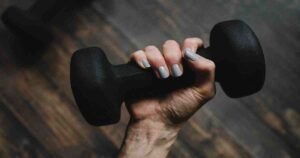Due to the multifaceted consequences of the pandemic, numerous people are losing jobs or facing a crisis in their career and family lives. As the educational institutes are closed, many students are getting addicted to technology, like virtual gaming on smartphones, which is disrupting their daily life activities and diet. All of these problems are causing depression and anxiety in people which is eventually leading to sleeplessness. Chronic sleep disorder or insomnia can make your body more vulnerable to the life-threatening COVID19 disease. Read this article to know how to sleep well during the pandemic. Sleep Fosters Immune System
Still today, the immunity system is your only weapon to fight against the attack of Coronavirus. Solid sleep at night can strengthen the natural immune system of your body; but how?
Research shows that sleep can foster T Cell production in the human body. T Cells are a kind of white blood cell that controls how your immune system is going to respond when any virus enters your body. Sleep deprivation can prevent ‘T Cells’ from responding efficiently which eventually makes it more difficult for the immune system of your body to kill the antigen virus and fight back against illnesses.
Furthermore, when you can successfully complete the four sleep cycles, your body can effectively produce and release a kind of essential protein substance called cytokine that can assist your immune system to respond against antigens quickly.
Sleep Improves Brain Function & Mental Health
When you get good sleep, your mind can work better in doing complex thinking, learning, memorizing, and decision-making. For both kids and adults, regular sound sleep not only enhances mood, and prevents anxiety but also keeps the energy level high and helps them stay sharp.
How to Improve Sleep Quality
Establish Regular Bedtime Schedule
Your internal circadian rhythm – which is also known as sleep/wake cycle or biological body clock – can naturally regulate the feelings of sleepiness and wakefulness throughout the day. If you can maintain a regular routine of bedtime and wakeup time for 7 days in every week, it can help your body clock work accordingly. Try not to break up the routine on weekends. Thus, you can have sound sleep every day amid pandemic.
Expose Yourself in Natural Sunlight
Try to spend some time under bright sunlight during the morning. If you are locked down inside your home to prevent the virus contraction, then keep your windows opened to expose yourself to sunlight for at least the early hours of the day. This can improve your mood and help to regulate your circadian rhythms or body clock.
In addition to this, to have a better sleep at night, you need to limit the light exposure in the evening, especially from electronic devices, like a laptop, desktop, or Smartphone. It would be more effective if you can change the brightness of your device by activating “night mode” apps or features. This simple trick can reduce the lags of your brain preventing disturbances in your body clock. Thus, you can improve your sleep in the long term.
Avoid Daytime Naps
Due to the body clock (circadian rhythm), the adults may feel sleepy at day time at 2 or 3 pm and fall asleep at late night around 2 or 3 pm. To maintain a healthy sleep routine, you must avoid taking short naps during the afternoon or other periods in the day time.
However, if you have a very little sleep on the previous night, you can make an exception to break the routine. Regular daytime naps can reduce your body’s necessity of sleep can lead to insomnia.
Do Some Physical Exercise
As health experts are encouraging people to stay at home and maintain social distancing, the normal pace of life has been hampered. Many people are avoiding their respective regular outdoor physical activities – like walking, jogging, swimming, playing or going to the gym – and investing more time on screen for watching TV, Netflix, or checking social media, which is hampering their sleep time. If you can do some indoor physical exercise or Yoga every day, it would help you to build up enough body fatigue to fall asleep quite easily. Thus, you can enjoy better sleep.
Handle Your Anxiety
Watching regular news to know how many people are getting affected or dying of COVID19 can enhance your worry. It can not only hamper your daily activities but also disturb your sleep on a regular basis. To avoid negative news you can limit your news exposure. If you are experiencing anxiety, do not hesitate to share your problems with family members, friends, or doctors.
You need to strengthen your bonding with family members to uplift your spirits and reduce anxiety. Besides this, you have to accept the fact that you may not have good sleep every night. Therefore, do not push yourself for sleep; rather try to manage your anxiety in a proper way.
Look into Your Diet
A healthy diet can improve your quality of sleep. Try to avoid drinking tea or coffee during the evening or night hours, as the caffeine can stimulate your nerve and delay sleep in the night. However, if you cannot avoid caffeine after sunset, you can opt for organic teas – like Chamomile tea – which can naturally enhance the quality of your sleep. Furthermore, eating heavy meals before going to bed can also hamper your sleep.
Avoid Electronic Devices before Bedtime
The human brain works like a computer. Usually, the brain tends to relate to bed and darkness with falling asleep. This function of the brain can be disrupted if you engage with any activity like video games, physical activity, or surfing the internet before bedtime. To sleep like a baby, you need to avoid those devices at least 90 minutes before your scheduled sleep time. However, if you have an important office or business task, try to set them aside from a minimum of 30 minutes before going to bed.
However, if you cannot feel sleepy within 15 to 30 minutes after going to bed, try something soothing, like reading a book or listening to relaxing music until you fall asleep. – Agencies




